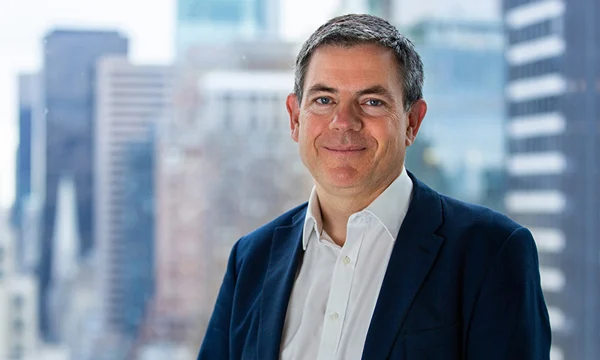Sign up today to get the best of our expert insight in your inbox
Energy addition, not energy transition? What does it mean for the future of our energy system, and the climate?
Special episode recorded at ADIPEC, the world’s largest energy event
Ed Crooks
Vice Chair Americas and host of Energy Gang podcast

Ed Crooks
Vice Chair Americas and host of Energy Gang podcast
Ed examines the forces shaping the energy industry globally.
Latest articles by Ed
-
Opinion
What Big Oil needs to invest in Venezuela
-
Opinion
Venezuela and what to expect for energy in 2026
-
Opinion
Venezuela regime change: what it means for oil production, crude and product markets
-
Opinion
Electric vehicles create problems for the grid. Could they also help solve them?
-
Opinion
Energy evolution: navigating the path to a sustainable future
-
Opinion
The Energy Pulse review of 2025
As world leaders, businesses and NGOs start their journeys to Brazil for the COP30 climate talks, more than 200,000 people attended ADIPEC in Abu Dhabi, the world’s biggest energy event. Energy Gang was there to bring you the highlights from the week’s discussions.
One of the key talking points was the theme of energy addition, rather than transition. In other words, the idea that new renewables and other low-carbon sources are adding to global energy supplies, rather than replacing fossil fuels. With forecasts showing an acceleration in power demand growth driven by AI, and the continuing need for increased energy supply to raise living standards in low and middle-income countries, calls for a rapid transition away from oil, gas and coal seem to many to be unrealistic.
At ADIPEC, the conversation centred around the vision of new low-carbon supplies stacking on top of hydrocarbons, to reduce costs, increase access and cut emissions intensity. But there was confidence in the prospect of robust global demand for oil and gas, in particular, for decades to come.
To debate that vision and assess what it means for the world, host Ed Crooks is joined by energy executives and analysts who have been part of the conversation.
Dr Carole Nakhle is the founder and CEO of Crystol Energy, an independent advisory firm. She was first up to discuss whether decarbonisation targets are being pushed further into the future, and how they can be met if clean energy is complementing fossil fuels rather than replacing them. “Complementarity beats substitution,” Carole says. What does that mean for energy security, access and emissions?
Next, Ed spoke with John Gilley, CEO of Kent, which designs and engineers assets for the energy industry, including both oil and gas and low-carbon technologies. John isn’t worried about a slowdown in clean energy deployment. When energy is cheaper, it gets used, he says, and solar and wind keep winning on cost. He believes climate change is the greatest challenge of our times, and his purpose at Kent is to support ways to tackle it, while meeting the world’s demand for energy. John and Ed talk it all through.
Sascha Sissiou is sales director for the Middle East and Africa at Aerzen, a German manufacturer of equipment for oil and gas and other industries. Sascha argues that, far from the momentum towards decarbonisation slowing, it is actually speeding up, as reflected in demand from Aerzen’s customers. Demand for flare-gas recovery and other emissions reduction technologies has grown, and Aerzen is rolling out new large compressors for the hydrogen industry. Sustainability standards now influence sourcing, logistics and manufacturing across industries from wastewater to petrochemicals.
Next, Clay Seigle, senior fellow at the thinktank CSIS, talks about the implications of sustained oil demand for energy security. On climate, he highlights the importance of industry-led investments in methane controls and carbon capture. Looking ahead, permitting reform could emerge as the next big US energy story; Clay explains why.
Finally, as the Energy Gang prepares to switch focus to COP30, Ed sat down with Bjorn Otto Sverdrup, who’s the head of the secretariat for the Oil & Gas Decarbonization Charter. They bring together more than 50 leading oil and gas companies from around the world to work together to cut their emissions. Bjorn says the industry’s top CEOs are staying the course on near-term decarbonisation goals with high impact - cutting methane and eliminating routine flaring by 2030 – because they make operational and reputational sense. There will be more to come on this issue at COP30.
We will be bringing you all the big stories and exclusive commentary and analysis on COP30 from our energy expert friends, as well as some new voices. So don’t forget to follow the show wherever you get your podcasts, to keep up with all our coverage of the climate talks over the next two weeks.
This episode was recorded live at ADIPEC 2025, the world’s largest energy event, held in Abu Dhabi from 3–6 November. With more than 205,000 attendees and 1,800 speakers, this year’s theme - Energy Intelligence Impact - sparked vital conversations about the future of energy.
Learn more about the event at adipec.com.






